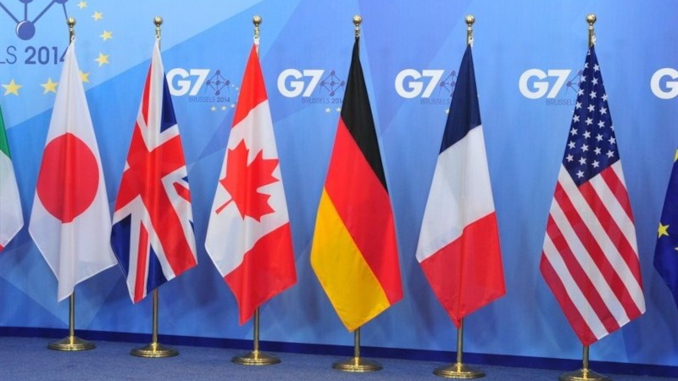
By Mark Anderson
Readers are likely aware of the Group of 7 nations, or G7, that holds regular summits on topics critical to advancing globalism, including “climate change” and sustainable development, global economic and political integration, pandemic preparedness, and related subjects.
Click the Link Below to Listen to this Article:
But how about Urban 7, or U7? The U7, under the auspices of the G7, “advocates for a continuous dialogue between the G7 nations and municipal actors represented by national associations and supported by international city networks,” according to its official website. The key cities involved in this globalist network are emancipating themselves from their traditional roles to help form policy at the supra-national level, as partners with globalist organizations.
This huddling excludes any conservative nation state based on tradition, including countries like Hungary, which is ridiculed by the G7-U7 clique as illiberal, nationalist, and extremist—a heretic that refuses to kiss the sacred but hollow ring of globalism.
The U7, formed with minimal mainstream fanfare in 2021, went right to work, accelerating the elevation of what they themselves call “autonomous” cities to the global stage, thereby making them into highly active “global cities.” The original founders and main promoters of the global cities’ governance concept have indicated that, at pivotal times, they’re willing to be at “cross purposes” with nation states, or even do an end-run around national authority altogether if necessary, whenever the issues at hand are “crucial” enough.
Currently, “climate change” is the core issue driving the U7—a grouping that represents a significant leap forward for a global cities’ movement that, in its modern form, was most visibly and substantively born in 2015 in Chicago via the Chicago Council on Global Affairs.
The U7 Group, as it’s named by participants, is chaired by a secretariat comprised of the Global Parliament of Mayors and ICLEI-Local Governments for Sustainability, along with the city association that’s from the nation that’s leading the G7 in a given year. Mayors such as Marvin Rees of Bristol, UK have taken part in Chicago Council global cities forums and are involved in current Global Parliament meetings and programs. Since Japan holds the G7 presidency for 2023, Japan’s Designated City Mayors’ Association (JDCMA) has assumed the associated city role in the U7 Group. To ensure all G7 countries and the participating local governments therein are fully represented, several national associations of cities, and network partners, are involved.
Those associations, besides the JDCMA, include the U.S. Conference of Mayors, Core Cities UK, the EU’s Eurocities, the Federation of Canadian Municipalities, along with German, French, and Italian city associations. The currently listed network partner is United Cities and Local Governments.
“Since its inception in 2021, the U7 has become an important player in the G7 process, especially with its unprecedented recognition … by the G7 Heads of State in 2022,” stated a press release from G7U7.org, dated April 20, 2023. “Throughout 2023, the U7 has been working closely with the Japanese Ministry of the Environment to ensure that the voices of cities are included in G7 debates. At the 2023 U7 Mayors Summit held in Tokyo on March 2, the U7 Mayors Declaration 2023 was presented.”
As for the declaration, a revealing excerpt states that “cities have the potential to implement innovative urban development approaches and create tangible improvements and sustainable living environments for their inhabitants. In order to accomplish this, however, “they require enabling framework conditions,” before listing the specific conditions and agendas agreed upon by the group’s members, including climate and environmental issues, and cooperation on urban development.
“We look forward to elevating these achievements during the 2023 Japanese G7 Presidency,” the declaration concludes.
Thus, the global cities movement that this writer has followed since 2016 is being hardwired into internationalist machinations, driving the movement to localize globalism—sometimes called “glocalism”—and reinforce and expand the world government infrastructure from the bottom up, or you might say from the inside out.
Cities are literally seeking foreign policy powers lawfully reserved to nation states. Those involved consider the nation state as a relic that needs to be notched down or marginalized, if not dissolved.
And yet it never seems to dawn on the municipal participants who operate under city charters and state and national constitutions that they have zero authority—having been elected by local voters—to leave their city confines altogether and congregate like a makeshift world mayors parliament to assist in formulating international policies.





